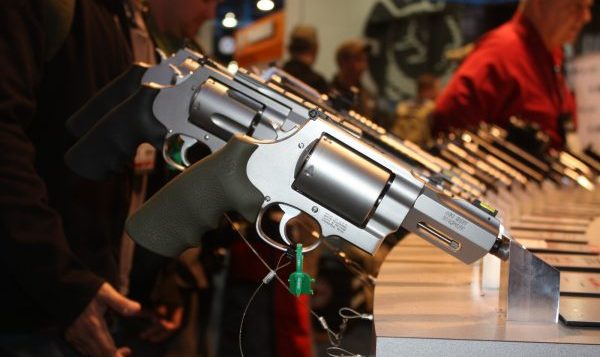
Monday’s smash-and-dash theft of firearms from a Colorado Springs gun store added one more glaring example of the failure of gun control in a state that has tried virtually every liberal strategy that was originally pandered as a scheme to keep guns out of criminal hands.
According to the Denver Post, gun thefts hit a 10-year-high in 2016, and Colorado is on track to meet or possibly beat last year’s statewide figure of 273 stolen firearms.
Granted, 273 guns ripped off by criminals may not seem like much, but in a state where “universal background checks” are supposed to keep bad guys from getting guns, there were and will be no such checks when any of those guns changes hands. Three years ago, the Daily Camera had that figured out, noting in a headline that the impact of expanded background checks was “vastly overstated.”
The newspaper has also reported separately that Colorado has seen a rise in crime. Rape, robbery and homicide were all up last year, the newspaper reported. Here’s the breakdown:
- Robberies were up 5.9 percent
- Aggravated assaults spiked upward 8.3 percent
- Rape was up 5 percent per 100,000 residents
- Murders were up 9.9 percent from 2015.
The data came from the Colorado Bureau of Investigation, which said that roughly one-third of the murders happened in Denver, which is to Colorado what Seattle is to Washington, Portland is to Oregon and San Francisco is to California.
In the process of reporting this crime spike, the Denver Post noted the following:
“Some Colorado lawmakers, police and legal experts partly blame the marijuana industry, claiming that it has lured transients and criminals to the state. Others point to a dramatic increase in the number of cars stolen to commit other crimes or to ship to Mexico. Increases in crime are often a reflection of economic conditions, said Steve Davis, spokesman for the Lakewood Police Department.
“I think it would be naive not to believe the increase in drug use is not having an impact on the crime rate,” said Rep. Cole Wist, R-Centennial, who serves on the House Judiciary Committee. But Cole added that it’s not just marijuana that is having an impact on crime, but also an increase in the use of heroin and illegal prescription drugs.”
By no small coincidence, Colorado and Washington both legalized the recreational use of marijuana at the same time. Some Evergreen State conservatives have suggested that liberal policies in Seattle and surrounding King County – including so-called “safe injection sites” for drug users and programs to accommodate homeless people – have created a “magnet effect” that attracts a criminal element.
The Seattle Times is reporting that King County judges are complaining that the area around the courthouse in downtown Seattle is unsafe and unsanitary.
Whether that is true might require more study, a favorite pastime of liberal “progressives.”
No research is required to figure out that stolen guns end up in the wrong hands, and laws that inconvenience honest citizens have no impact on violent crime. To argue otherwise suggests a strong sense of denial, which seems many times to be pole around which liberalism spins.